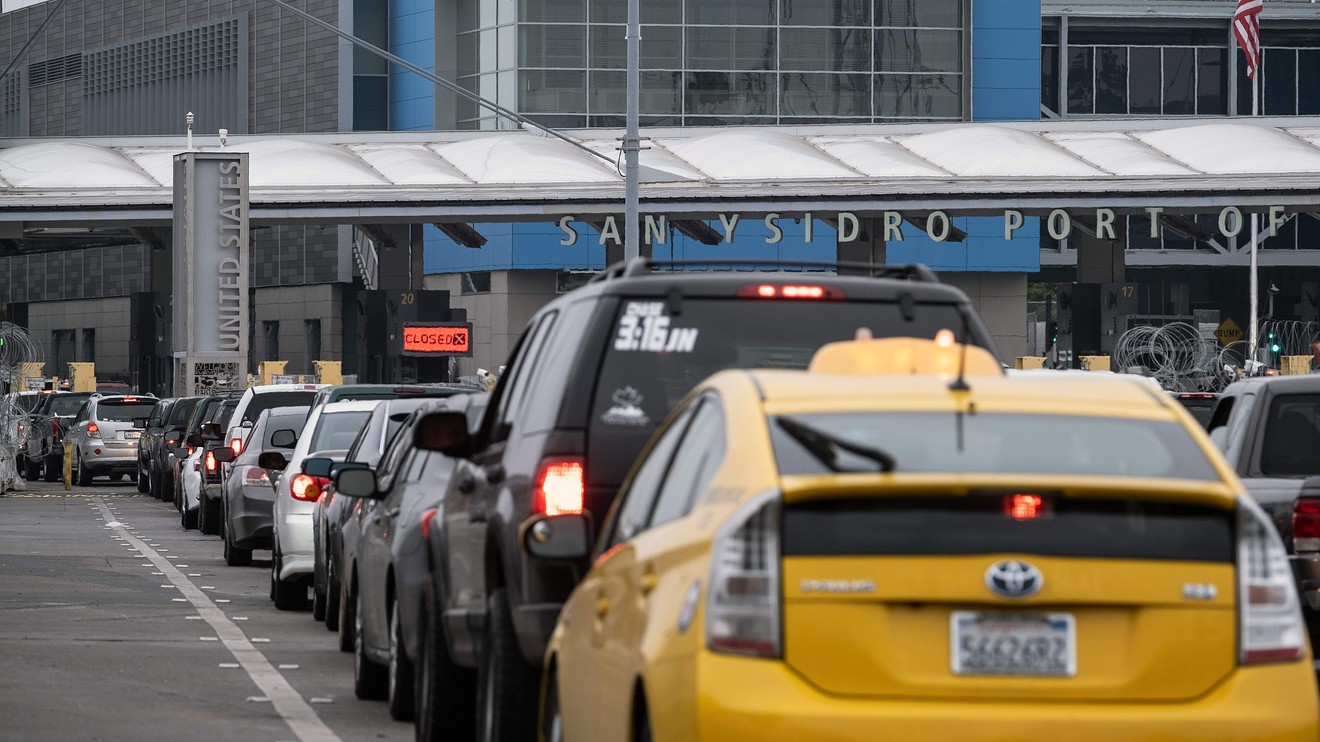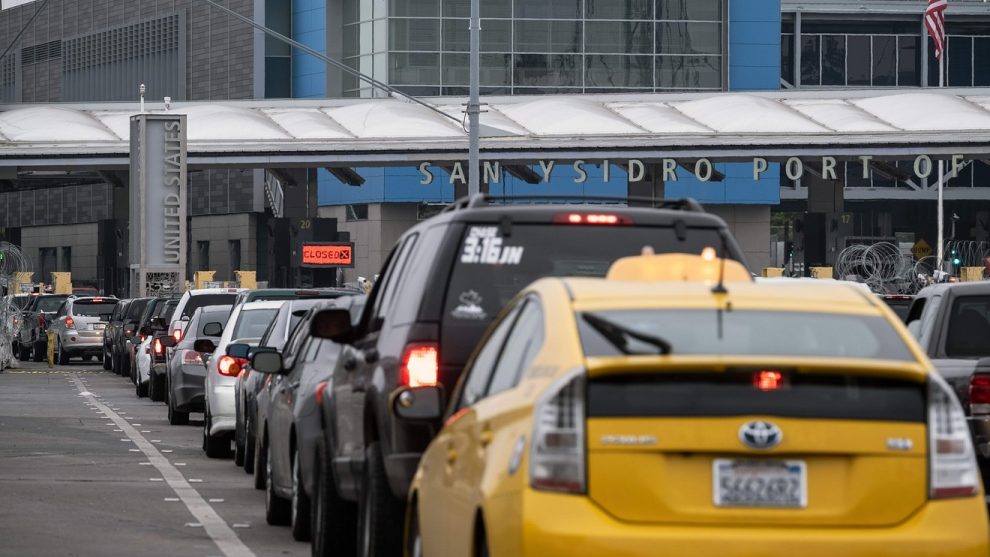
U.S. stocks fell on Monday as tariff fears dragged a key bond yield benchmark to its lowest level in about 20 months, deepening a so-called yield-curve inversion that has accurately predicted economic recessions in the past.
How are major benchmarks faring?
The Nasdaq Composite Index COMP, -2.06% dropped 140 points, or 1.9%, to 7,311. The tech-centric index is on track to close in correction territory, defined as a benchmark closing at least 10% below its recent peak, which stands at 7,347.59 for the tech-centric gauge from its May 3 peak.
The Dow Jones Industrial Average DJIA, -0.45% fell 111 points, or 0.4%, 24,719 and the S&P 500 index SPX, -0.75% slid 18.25 points, or 0.7%, to 2,733.88.
See: Dow, Nasdaq declines belie bullish market breadth data
What is driving the market?
The benchmark 10-year Treasury yield TMUBMUSD10Y, -2.64% deepened its inversion against the 3-month Treasury bill TMUBMUSD03M, -0.23% as worries about U.S.’s trade frictions with China and Mexico intensify, rippling throughout global markets.
The yield curve, which measures the difference between the yield on the longer duration Treasury and its shorter duration counterparts, tend to slope upward because investors usually demand higher yields for extending loans over a longer period. An inversion of the yield curve, particularly of the 10-year/3-month pair, has preceded the past seven recessions, while throwing out two false positives with an inversion in late 1966 and a very flat curve in late 1998, according to the Federal Reserve Bank of Cleveland.
The moves come even as some signs of moderation of trade tensions have emerged, with officials from China and Mexico indicating that they are open to talks with the U.S. as tensions ramp up.
Chinese Vice Commerce Secretary Wang Shouwen said on Sunday that “we’re willing to adopt a cooperative approach to find a solution,” according to The Wall Street Journal. At the same time, the Beijing issued a white paper that reiterated the demands that additional tariffs on Chinese goods be lifted before new trade talks can begin, while placing the blame on the U.S. for the recent breakdown of negotiations.
Tariff worries reached a fresh degree of consternation for fixed-income and stock-market investors after Trump said on Twitter that the U.S. would impose higher tariffs on Mexico beginning June 10 if the country doesn’t stem the flow of migrants across the border.
More bellicose rhetoric on trade also has driven yields for European bonds substantially lower as investors flee to the perceived safety of government paper. German bonds, a closely watched bond proxy for Europe, deepened their slide into negative territory, with the debt trading at negative 0.215%, according to FactSet data. Bond prices move in the opposite direction of yields.
The Institute for Supply Management’s manufacturing PMI came in at 52.1% in May versus a 52.8% reading in April and lower than the 52.6% expected by economists surveyed by MarketWatch.
Read: U.S. manufacturers expand in May at slowest pace in 2 1/2 years, ISM finds
Markit also released its purchasing manager’s index for the month of May, reporting a 50.5 level versus expectations of 50.6, according to FactSet.
What are strategists saying?
“Tariffs have two primary impacts all other things being equal: decrease GDP and increase inflation. While it is impossible to know whether all the contemplated tariffs against China and Mexico will be implemented, the total ‘worst-case’ package could knock as much as 1 percentage point off U.S. GDP,” said Bill Stone, chief investment officer at Avalon Advisors LLC, in a note.
“President Trump has touched down in the U.K., and given that he is at the center of the trade spat, dealers will be playing close attention to what he has to say. The U.S. president has taken a tough stance on China and Mexico recently, and it is possible he might weigh in on the Conservative Party leadership race, and that could trigger volatility in the pound,” said David Madden, market analyst at CMC Markets U.K., in a research note.
What stocks are in focus?
Shares of Google parent Alphabet Inc. GOOG, -6.57% GOOGL, -6.66% sank 6.7% after a report in The Wall Street Journal Friday afternoon indicated that the Justice Department is preparing to investigate the company for possible violations of antitrust law.
Shares of Amazon.com Inc. AMZN, -5.43% dropped 4.9% and Facebook Inc. FB, -8.23% shares skidded 7.6%. Both companies have also been focus of antitrust discussions of late.
Apple Inc. AAPL, -1.82% shares fell 1.4% after a Reuters report that the Justice Department now has sole jurisdiction for a possible antitrust probe of the iPhone maker and the potential probe would be part of a broader look into large tech companies.
Shares of Johnson Controls International PLC JCI, +0.12% rose 0.5% after the electronics and HVAC company announced the preliminary results of an auction where the company sold roughly one hundred million shares at $39.25.
El Paso Electric Co. EE, +13.52% shares surged 14% after the company said it would be acquired by JPMorgan’s Infrastructure Investments Fund, in a deal worth $4.3 billion.
Shares of Cypress Semiconductor Corp. CY, +24.02% rallied 24% after Infineon Technologies AG IFX, -8.05% announced that it would acquire the firm in a $10.1 billion deal.
How are other markets trading?
Asian markets closed mostly lower with the Shanghai Composite Index retreating 0.3% and Japan’s Nikkei 225 NIK, -0.92% slipping 0.9%. In Europe, shares were trading broadly higher as evidenced by the Stoxx Europe 600 SXXP, +0.39% which rose 0.4%.
In commodities markets, the price of oil CLN19, -1.38% reversed direction to fall while gold GCN19, +1.62% settled at its highest since late February and the U.S. dollar DXY, -0.63% weakened against its peers.
—Mark DeCambre contributed to this article












